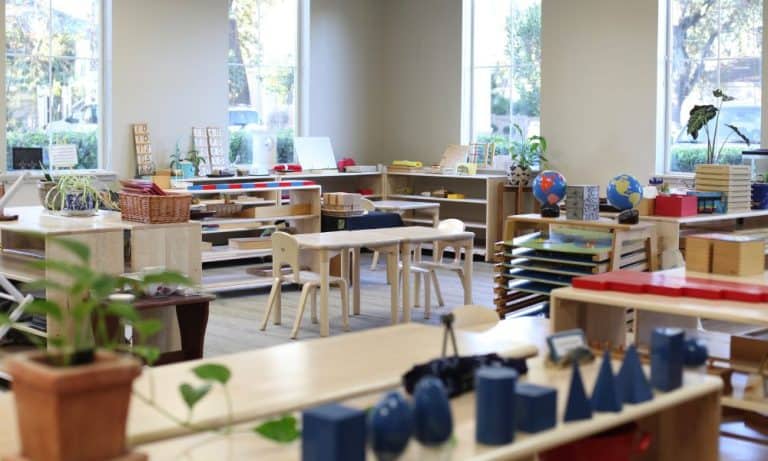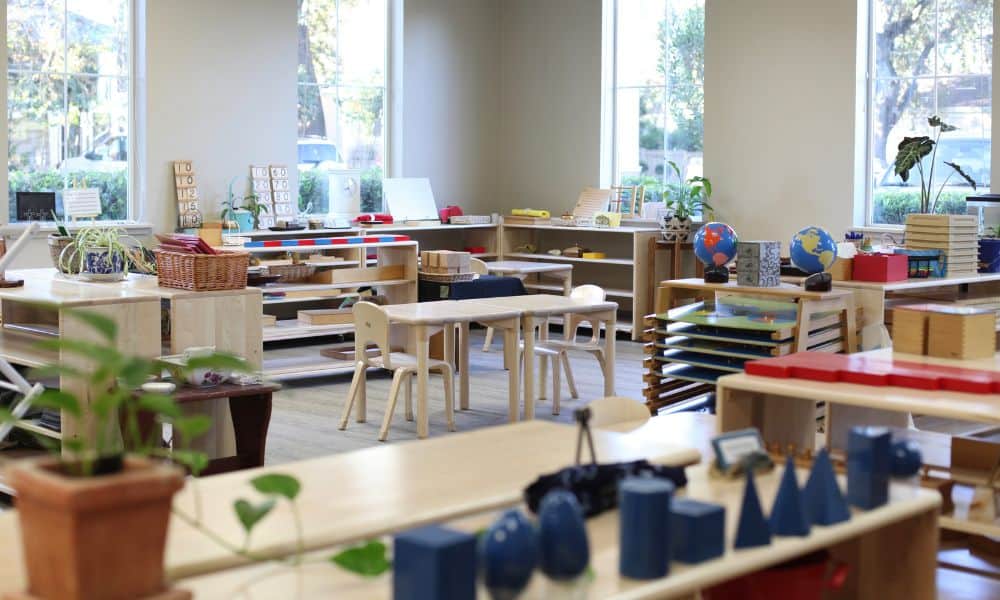Montessori education has been successfully serving children and families around the world for over a century, yet the fundamentals remain – and for good reason! Our methods are consistently backed by current research in education and human development, like this recent article published by The Conversation.
While such research is a boon to the reputation of Montessori schools, we are further encouraged by a clear congruence of current Montessori methodologies with the OECD Future of Education and Skills 2030 – it appears we have reached the future early! The New Normal is already here at FMS.

In this short video, the OECD identify 6 features they suggest may become ‘the new normal’ for future education systems. They are:
- Shared decision making and responsibility
- Students as participants on own learning
- Wellbeing valued in addition to academics
- Recognition of different learning styles
- Learning is non-linear and requires a range of assessment methods
- Frequent feedback informs ongoing improvements to education
How does Montessori measure up?
To start, Montessori schools allow each child to move at their own pace. We know that learning is not linear, and children are not ready to learn according to an adult-prepared timeline, or in perfect harmony with their peers.
Our learning environments are set up to ensure that kids who need more support with certain skills get that support. Those seeking to move ahead are able to find the challenges they crave. We understand that students do not grow at the same rate, and it’s our job as educators to meet children where they are and give them the support they need to get where they want to be.
These fundamental aspects of the Montessori classroom reflect three of the six features in the OECD future of education, recognising that learning is not linear, creating space for different learning styles and speeds, and allowing students more agency in their learning.
We emphasis more than just academics
A key feature of the Future of Education that aligns with Montessori practices is that wellbeing is valued in addition to academics.
You may have heard phrases like ‘holistic education,’ or ‘teaching to the whole child,’ and at Montessori schools, we mean this on a very deep level. We do not teach just to convey academic information. Academics share emphasis with our efforts to develop other aspects of the child, including emotional, social, sensorial, and practical life development. We integrate the arts and movement into everything our children do, rather than isolating these into a separate class. We intentionally teach children how to navigate and resolve conflict and how to adhere to grace and courtesy social norms.
Members of our community see this implemented every day in the range of wellbeing programs offered at FMS, from equine and animal care, to gardening and environment, and Grow Your Mind mental wellness activities.
We value academics, but want students to also understand the interconnectedness of all things so they may be fully integrated members of their greater community as they mature.
…but Academics still count!
That said, Montessori academics are often hailed as some of the highest standards there are. It is not uncommon to see four-year-olds in our schools reading, six-year-olds completing long division, and nine-year-olds classifying botanical specimens. These tasks are completed joyfully, in part because we present information in such a way that children discover it for themselves rather than passively taking in facts given by an adult.
The Montessori environment allows students to develop at their own pace in line with current skills and interests. Self-discovery, curious exploration and independence are encouraged from the youngest age. As noted previously, children are supported where they need to grow and have the flexibility to extend their learning when ready, regardless of where their peers are at.
This is exemplary of non-linear learning, acceptance of different learning styles and student engagement in their own education. Again, it appears Montessori is delivering the future of education today!
Greater than the sum of our parts
A Montessori school is more than just a school. First and foremost, we are here for our students, but we believe schools have the capacity to be so much more. We aim to make meaningful connections between everyone involved. This sits within the space of shared decision making and responsibility.
There are so many ways we encourage shared decision-making across the FMS community. Here are just a few:
- Strategy planning between our Board of Directors and leadership staff, as held just this week!
- Annual parent surveys (which you will receive very soon!).
- Opportunities for our educators to connect with one another for personal development
- Encouraging staff to form connections within the larger Montessori network
- Allowing time for parents and guides to discuss children’s needs
- Parent education opportunities (like this week’s In Conversation session)
- Creating opportunities for FMS families to connect with one another
- A variety of communication channels within our community
- Classroom observations that allow space for parent feedback
- Community Team working with staff on activities, fundraising and social events
- Students planning, hosting and running their own community meetings
We believe it is our job to take the guesswork out of making these types of connections. We aim to build in structures that make it simple for everyone to find commonalities and open streams of communication seamlessly.
From the very beginning, Dr. Montessori saw it as her mission to improve the world through education.
She believed that by giving children the honor and respect they deserved, the benefits would trickle through to families, the community, and society in general. With the OECD Future Trends in Education, it appears the rest of the world may soon follow!
For more information about the OECD Trends in Future Skills & Education 2030, click here and see for yourself how the New Normal is already here at FMS!
To learn more about these aspects of our school, please reach out or leave your comments below.



